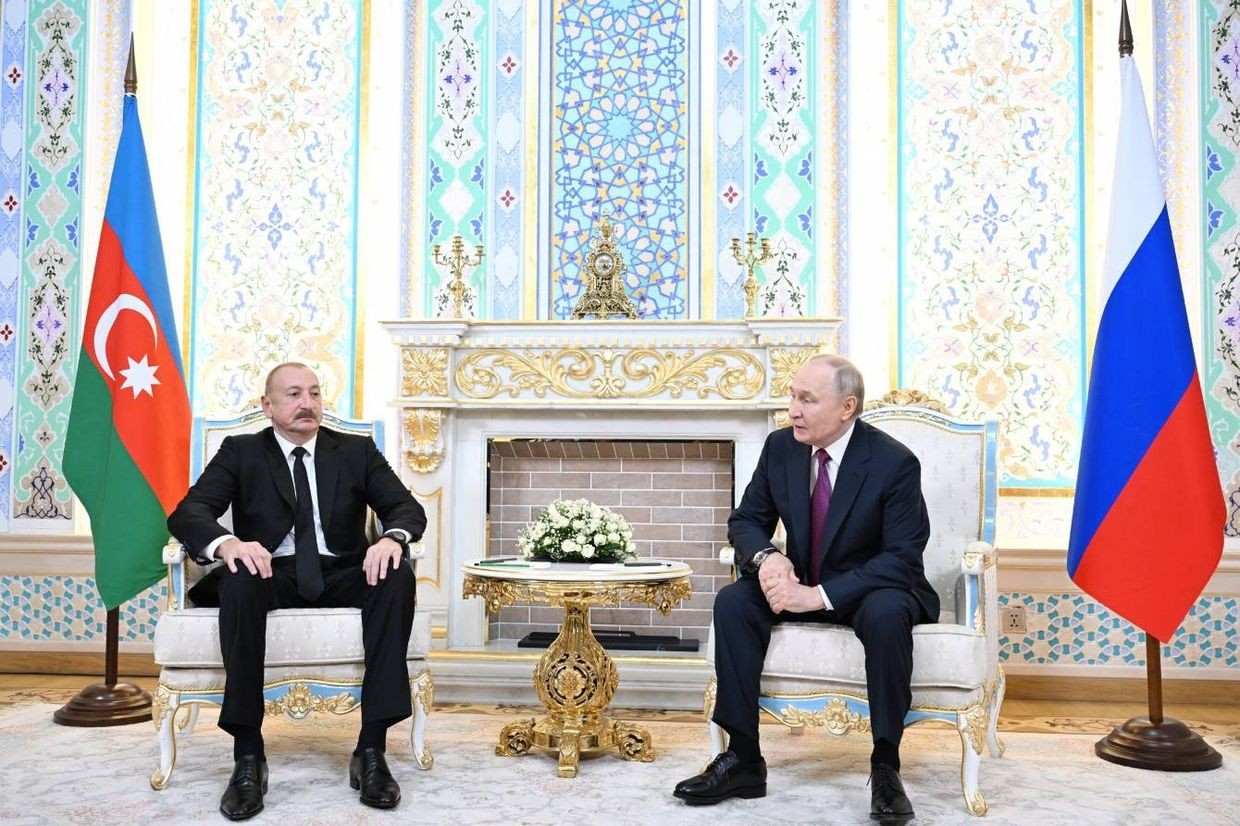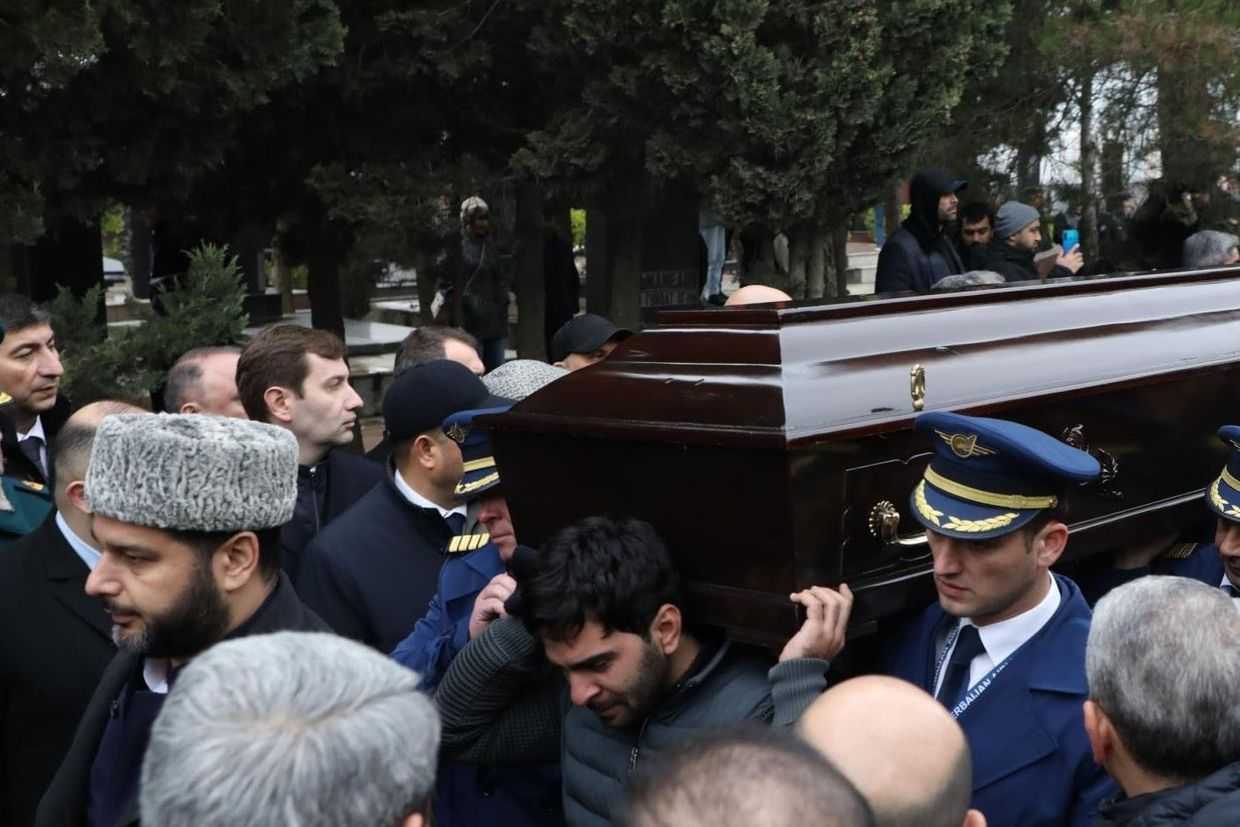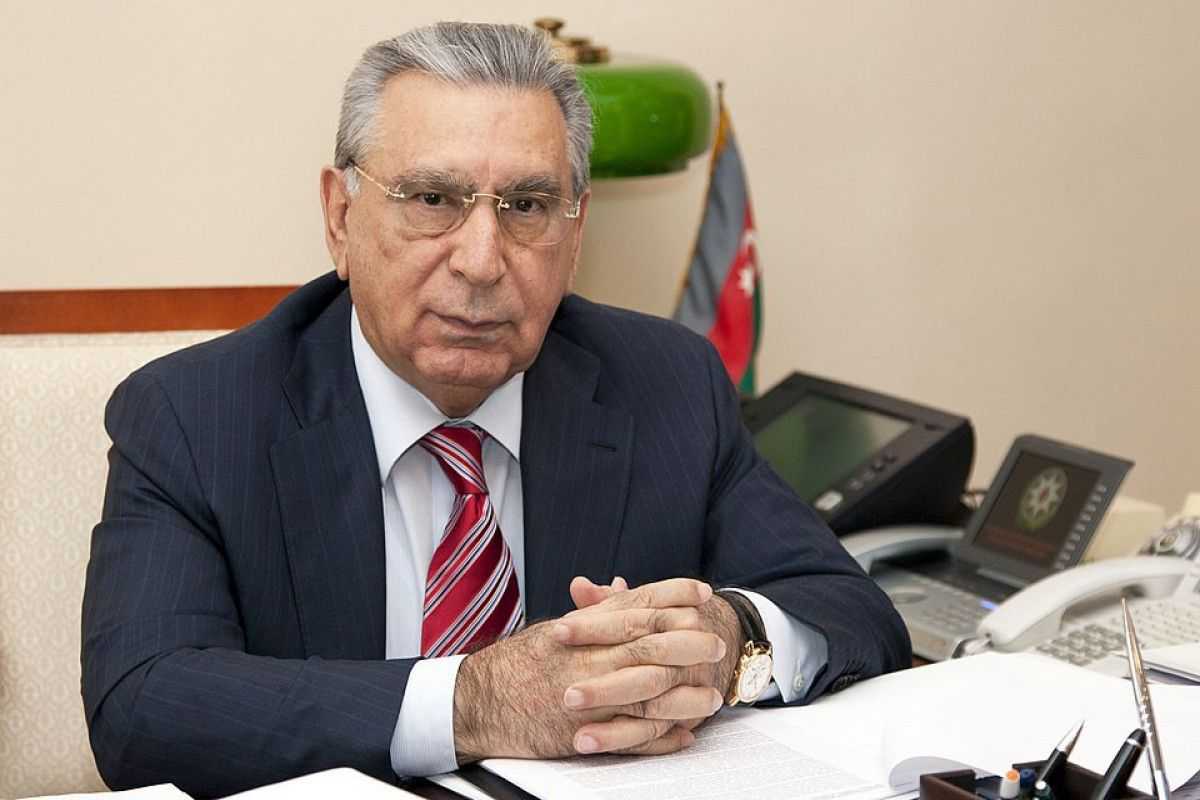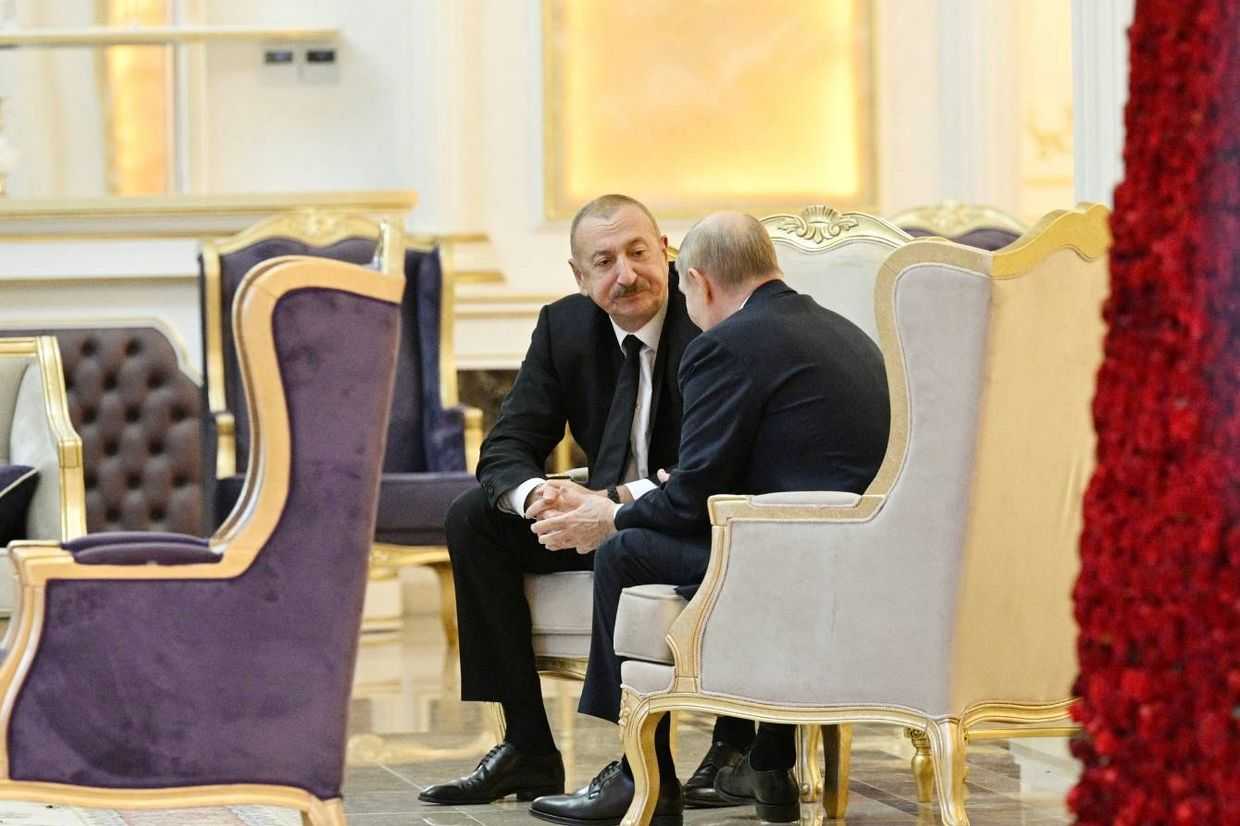Putin admits fault for deadly plane crash to Aliyev in awkward press conference

Russian President Vladimir Putin has publicly apologised for the deadly Azerbaijan Airlines (AZAL) crash in December 2024, acknowledging that the incident, which claimed the lives of 38 people, had been caused by a Russian anti-aircraft missile.
Putin’s acknowledgement of Russia’s responsibility for the crash could bring an end to almost a year of sharp tension between Baku and Moscow, which originated from the incident but then included further escalations from both sides.
The apology came during a long-winded, rambling comment during an awkward press conference in Dushanbe, Tajikistan. Seated next to Putin, Azerbaijani President Ilham Aliyev stayed silent and impassive for more than five minutes as Putin continued to speak.
The body language was a far cry from what was on display during the last major in-person meeting between the two in August 2024, when Putin stayed at Aliyev’s residence. Besides a brief interaction at a summit in China in September 2025, the two leaders have not spoken in person since the plane crash.
Putin said he had apologised to Aliyev during a phone call earlier this week, when Aliyev had called to wish him happy birthday.
He then went on to say there were ‘several reasons’ for the plane crash, starting with the presence of Ukrainian drones in the air at the time the plane was approaching Grozny.
‘The second reason involves technical malfunctions in Russia’s air defence system itself’, Putin said, adding that the two anti-air missiles launched did not strike the plane directly. A direct impact would have resulted in the complete destruction of the plane, Putin said.
The comments were shared on the front page of the Russian state-run media outlet TASS, under the headline, ‘Putin links the AZAL crash to the presence of Ukrainian drones in the sky’. The article did mention that Putin had said the plane was struck by ‘debris’ from a Russian anti-air missile.
A separate TASS article entitled, ‘The Ukrainian trace and Russia’s help with the investigation’, further appeared to soften Putin’s apology and deflect the blame onto Ukraine.
The article detailed the main points of the conversation, reiterating Putin’s assertion that the missiles did not directly strike the plane, and also adding that the pilots had been offered to land in Makhachkala, Daghestan, but instead opted to return to their home base. It was not explained, based on this version of events, how the plane ended up in Kazakhstan, across the Caspian Sea.
Putin said the investigation was almost complete, pledged that compensation would be paid, and emphasised that those responsible would face legal consequences.
After several minutes of stony silence, Aliyev responded by thanking Putin for ‘personally keeping this situation under control’.
‘You are personally overseeing the course of the investigation, and we had no doubt that it would thoroughly and objectively determine all the circumstances. Therefore, I would like once again to express my gratitude that you deemed it important to address this issue during our meeting’.
The deadly plane crash
According to the initial official reports, AZAL flight J2-8243 was flying from Baku to Grozny on 25 December 2024 when it encountered trouble landing and was redirected to the Kazakh city of Aktau, where it crash-landed.
Shortly after the incident, Azerbaijan blamed Russia for shooting the plane down and urged the Kremlin to take responsibility, punish those involved, and pay reparations to the survivors. While Putin said at the time that he apologised for the ‘tragic incident’, he stopped short of admitting Russia’s guilt in the matter. In July, Aliyev said Azerbaijan was preparing to take Russia to international court over the plane crash.
Azerbaijani officials also said that Russia was dragging its feet on the investigation, and in July, Azerbaijani media said that the Russian officers responsible for firing the missile had been identified based on leaked documents.
The incident set off an unprecedented collapse in Azerbaijan’s relations with Russia, which worsened after Baku said that Russian police tortured two ethnic Azerbaijanis to death in Yekaterinburg in June 2025. Tensions quickly escalated in the following days, with Azerbaijan issuing a formal complaint to Russia, cancelling all Russia-related cultural events, and arresting a number of Russian journalists accused of espionage.

This article was translated into Russian and republished by our partner SOVA.










